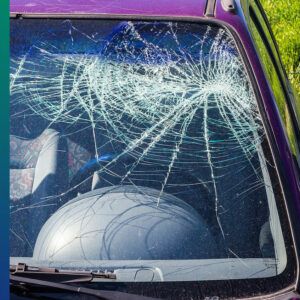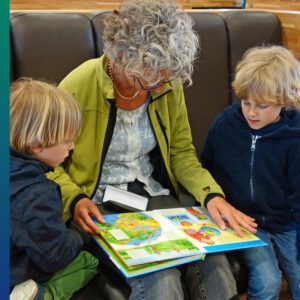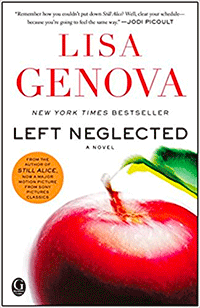
Do you like to read? I love it. There is not a day I don’t read. Sometimes there has been going on so much, there was only time for half an hour before bed. Other days I read every time I walk my rounds in the house (which I do twice an hour in order to prevent sitting too much).
When one reads that much, a book must either be very well written or have very valuable content to stand out. Left neglected by Lisa Genova is such a book. Better yet, it is very well written and has content full of life lessons.
It’s not meant as a selfhelp book, but it is very well possible to learn your own lessons from the content of this book, which I love.
Table of contents
What is the most important in life?
What matters in life? Is it the big shiny car? The fact you can brag about your 7-figure business? Or do other values give meaning to our lives?
When I cleared my mother’s apartment, because she was moving to a nursing home, she started crying. “I have saved all my life to buy nice stuff. And I have always been careful with it. How much value does it have to someone else now?”
Good for her she hadn’t put her whole soul and salvation in just stuff. She had made an effort of building memories as well, both with my father and later as a widow. But it made me realize that sometimes we also put value to material things. What do we give up to chase them?
What is really important in life?

In the end our health is the most, really most important in our lives. When my mother was crying that day, she also cried because of the loss of her independence. She had to go to the nursing home, because she was not capable anymore to take good care of herself because of her vascular disease.
A question I can’t answer to this day is: if you have to be ill anyway, what is better? A physical condition or a mental one? Both my parents were physical in good shape, but had some form of mental illness in the last years of their lives.
The issue described in Left neglected is a combination of physical and mental inability. Because of brain damage the body can’t perform certain automatic tasks anymore.
Left Neglected in a nutshell
The main character in Genova’s book is Sarah Nickerson. Sarah is completely absorbed in the rat race. A high demanding job where a 40-hour workweek would be considered part-time work. A husband with an equally demanding employ. And 3 young children with the accompanying day to day problems.
On a rainy day, driving too fast to her work, trying to win time by squeezing in a phone call, her world comes to a stop by a hefty car crash. Are there really still people who don’t know you shouldn’t combine handling your phone and driving? Obviously there are.
Sarah wakes up from her coma to discover she has a serious brain injury, which makes her ignore what’s on her left side. In a slow and painful recovery process she learns to value several standards she had set for herself in a whole different way.
Will your family grow with you?

Sarah’s recovery is painful, but it is also a turning point. Because she is thrown back into an almost childlike behavior, she understands her children and their problems better. It sets her off on a path of growth.
Her husband Bob is a workaholic like she used to be. As Sarah starts to value work differently, what does that mean for their relationship? If one partner sets foot on a personal development path, the other partner either chooses to grow with her or resents it. Either way, change will happen inevitably.
And the third family thread in the story is Sarah’s relationship with her mother. To some extent she is disabled so they need help in the house. Bob has to go to work as the medical bills pile up, it’s obvious he can’t be the caretaker. So to Sarah’s horror he asks his mother-in-law to offer a helping hand.
Is it possible to accept a decline of your body?
From busy, multitasking, highly professional worker bee to incapable person who needs to learn the most basic skills all over again. How does one accept that?
And what is the best strategy, ignore your disability or come to terms with it?
All these story lines, as deeper layers in the book, make the whole process very interesting to witness and make the book a page turner.
Highly recommended
Normally I am already a fast reader, but I finished this book in 2 days. What particularly appealed to me was the recognition in the field of personal development.
Fortunately, I didn’t have to go through such a traumatic accident to develop myself. But because I developed as well it allowed me to sympathize with Sarah’s.
I was amazed the book was published in 2011. That’s almost a decade ago, making me wonder why I hadn’t read it before. I am glad a friend said I should read it, and I can repeat her remark: You should read it. 🙂
Lisa Genova
Genova is a Harvard graduate of neuroscience. That does not stop her from conducting additional research into the disorders that are highlighted in her books.
The combination of this knowledge with a deep psychological insight makes her books extremely credible. As a reader, I felt taken on by Sarah’s journey to recovery.
An exciting fact for anyone with a writer’s ambition: Genova self-published her first book Still Alice. And because it sold so well, Simon & Schuster was anxious to acquire and publish it later on.
The bare facts
Title: Left Neglected
Writer: Lisa Genova
Published: 2011
Formats: Paperback, hard cover, Kindle; ePub at Kobo
Other books:
- Still Alice
- Love Anthony
- Inside the O’Briens
- Every Note Played
What book are you enthusiastic about? Tell me in the comment box.
Reviews of books I have read:
Review: Left Neglected by Lisa Genova. What is the most Important in Life?
Wouldn’t you like to make some extra money by doing something you truly enjoy? Like reading books and writing reviews? Become a member of Wealthy Affiliate and start your own website about your favourite books.
You can start for free without any risk.



Hi Hannie,
This sounds like a really interesting and important book. Especially for people who are also in the rat race (like me). I don’t have 3 children but I do live in London working 40+ hours a week. Especially during these tough times, it is so important to relieve our stress as much as we can. I need to start thinking about my work and valuing it a bit differently than I used to.
I need to ask myself that question, “what is most important to me in life?”
Is it work, family, me, or is it something else?
I’m so pleased I came across this article and made me think a little bit differently, and a little bit deeper.
Thank you so much for sharing and keep up the amazing work.
All the best,
Tom
In the middle of the rat race it always seems like work is the most important. I have been there as well, Tom. Not as an employee, but as an employer. And then my father got ill.
As my care taking task got more time consuming, I had to decide whether I felt more responsibility towards my staff or to my father. I chose the latter and am glad I did. Caretaking made my life richer and improved my relationship with my father. And by letting go of my employees, my working life improved as well.
Hi Hannie,
I’ll keep this short and sweet (for once).
I love anything remotely related to personal development, and if there’s a story attached to it (even in the form of a novel), then all the better.
So, being a voracious reader, and the subject matter pertaining to something that interests me, and of course due to your recommendation, I’m in – I’ve just purchased Left Neglected and look forward to reading it.
Thanks
Partha
LOL, so you can keep things sweet and short, Partha. 😉 Just kidding.
I hope you like the book. Please let me know what you thought of it. If you like it, you will probably like Still Alice from the same writer as well.
A writer that appeals to me as well is Jodi Picoult.
Hi Hannie, I absolutely love this article and will be ordering my copy of ‘Left Neglected’.
I watched my mother’s cognitive decline and ultimate death from Alzheimer’s and a few years later watched my father’s physical decline as he battled and ultimately succumbed to cancer.
I also worked many years in a nursing home in palliative care.
I have repeatedly found that those who lose their mental capabilities seem to be happily unaware of their decline while those with physical ailments know their body is failing and feel trapped as a result.
I am now retired and no longer a part of the rat race and am thankful for it. I totally have realized what is truly important in my life since retiring. Thanks for this article.
You sure have more experience with patients than I have, Deb. So in general you are right, I guess. I can only judge on the basis of my parents and I know that my father had a couple of really tough years before his Alzheimer’s became too progressed. It was especially hard because he was not able to talk about it. He denied being ill, so that made expressing any concerns impossible.
It’s just horrible to see people sick and not be able to do anything about it, isn’t it?
xxx
You are so right Hannie, it is heartbreaking to watch people sick and especially so when they are family members. I am sorry your father had such a rough time in the early stages. In my mother’s case, I think it was harder on my Dad as he watched her forget how to do the things she had done her whole life. I hope my children don’t have to witness me decline in that way.
I share your concern, Deb, I hope my family doesn’t have to witness me like that either. The only thing we can do is try everything possible to avoid it by living a healthy lifestyle, moving a lot and learning new things all the time to get that grey matter to work. 🙂
Take care.
I used to be in a high-paying job. I was a contracting computer programmer and I was able to dictate the terms of my employment. I worked a 4-day week and had 6-8 weeks vacation time each year and I bought lots of “toys” – materialistic stuff.
I clashed with the management of the company who were leasing my services. They didn’t like my straight-talking about the direction their company was taking and decided to terminate my contract.
TBH, I felt kind of burned-out at that point and decided to take a year out. I had plenty of savings to cover living expenses. But at the end of that year, I had no inclination to return to an office setting, office politics and daily commutes so I started building an online business instead.
This was the mid-2000s when all this “working online” stuff was brand new and the first few years (I never did go back to full-time employment or contracting) were tough as I tried to figure things out.
That’s when I had to tighten my belt and I realised all the “toys” I’d bought were just stuff that had no intrinsic value. They were diversions, quickly replaced with another diversion.
Then one of my closest friends died of breast cancer. A couple of years later, another close friend died of stomach cancer. Those are the kinds of event that stop you in your tracks and make you re-evaluate what’s really important in your life.
So I started looking after my own health more because that’s central to what you want to get out of life. After that, it was a re-evaluation of my relationships with others. Who were my real friends and who were fair-weather “friends”? I re-established connections with relatives that I hadn’t seen in years.
I can’t say money isn’t important in life but it should only be a means to an end. Having it certainly makes life easier. But while it may let you be miserable in comfort, it won’t bring you happiness.
Real wealth is measured in the quality of your relationship with friends (who you get to choose) and family (who you don’t). The fact that so many of us around the world are cocooned, isolated or forced to be at a distance from one another due to the pandemic just makes all our lives less rich and less enjoyable as a result.
Friends come and go, but the best remain with you for a lifetime and have your back when you need support. So, for me, the most important thing is the people I cherish having in my life because you never know when they’ll be taken from you, or you from them. Everything else is noise.
Oh, Gary, a story to my heart. You are sooo right and you really made the right decisions. Health and relationships come first, all the rest comes second. And yes, if you have money you can do more, but I love your quote about being miserable in comfort. So true.
Thanks for this genuine story.
Take care.
xxx
Hi Hannie,
This sounds like a really good book with an important message. Most people I know are caught up in the rat race, not once or rarely slowing down. Many are still using their cell phone while driving … I am always terrified if I am a passenger in someone’s car and the driver starts texting or talking on his phone while driving … I always tell them that it’s dangerous, but I always get the same answer, “no big deal”, “I do this all the time, and it’s fine”.
Over the last years I have also learned to be more mindful, I started meditating, reading books regarding mindfulness, and so on. Work is necessary, but in the end it is a job and a job should not be my life. We have to live our lives, enjoy it. That in itself gets plenty of obstacles from events and people in life itself. There is no need to add the stress of the rat race to that.
Oof, I am glad I have never been in a car driven by someone who started to text! But I was lucky enough to have my own car and always suggested I would be the driver. That way I avoided bad drivers, drunk drivers and the lot.
Meditation and mindful living is a clever choice, Christine. At times we all learn the hard way to slow down – you did that as well – and if we truly learn from it, all for the better. 🙂
Hi Hannie,
I almost start crying whilst reading this article. My grandmother is ill at the moment and I cannot imagine how she feels when she cannot communicate properly with the family.
I think this is a great read for all of us to help her in her journey and offer her the support she needs.
Thank you for this amazing review that opened my eyes.
Oh, Yoana, I am so sorry for the illness of your grandmother. It is so horrible to see a loved one sick. Is there a chance she will recover? Take good care, of both her and yourself. <3
Hello Hannie
I absolutely love this post. I was so sorry to hear about your own experience with your Mum. I can’t imagine how hard that would be.
What is the most important? I agree with Gary, the quality of your relationships is very important. Also, for me, the quality of the relationship you have with yourself and God – knowing that you are loved no matter what. Always learning and striving to become who you were created to be. Having hope. Everything you are looking for to fulfil you on the outside can only be found on the inside. I think you only learn this (if you are lucky) with age.
Possessions don’t mean anything – they are nice to have but don’t leave any sense of satisfaction.
Hal Elrod has a very interesting part in his books ‘The Miracle Morning’ and ‘The Miracle Equation’ about his near fatal accident and how he handled it. His view now is that if it hadn’t happened, he wouldn’t have gone on to find his true potential.
Anyway, I absolutely must get this book, it sounds fantastic but I hope it’s not as harrowing as ‘Still Alice’. I saw it at the cinema and have never left feeling so devastated. It took me days to recover.
Thanks again for your inspiring content.
Best,
Jean
Thank you so much, Jean. I too loved Hal Elrod’s book. I have only read the first one you mention, but it made a huge impact on me as well.
My mother was always feeling sorry for me too, because it was ‘so time-consuming for me’. But I loved to be able to do all the caring and fussing for her. The only thing that I did regret was that I couldn’t make it clear to her that I thought it was a positive experience for me not a negative. She saw only that it kept me away from my business – I saw the beauty of going through a process together that was meaningful.
As for the content of the book: Still Alice is about Alzheimer’s. That’s a one way direction (downhill). Left Neglected is more uplifting in that regard. I don’t think you will feel so devastated after reading it. At least I didn’t – I felt inspired. 🙂
Hi Hannie,
Thanks for this article! This book sounds very interesting, and very different from my normal reading materials in the fantasy realm. Your review has made me consider branching out a bit though; as a young adult who is starting my career and looking to start a family with my hard-working boyfriend, it sounds like it would be a great book to encourage a lot of self-reflection and personal growth.
Thank you for the recommendation! I’ll have to check this book out.
Hey Jade, it’s always good to look behind your own borders at times. 🙂 I am not into fantasy, but the other day I read a fantasy story I really liked, so I am no longer so dismissive of the genre as I used to be.